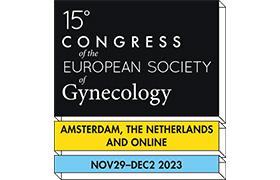A Joint British Association of Day Surgery & HCUK Virtual Conference
News and presentations from today's conference focusing on day surgery which is now provided for an increasing range of procedures, in patients ranging from the very fit to the rather frail. It has become the standard of care for many elective surgery procedures and should be the default option for all 200 procedures within the BADS Directory of Procedures.
Day Case Laparoscopic Hysterectomies
 Miss Melanie Tipples
Miss Melanie Tipples
Consultant Gynaecology Surgeon
University Hospitals Sussex NHS Foundation Trust
• Introduction of a day case Hysterectomy service
• Day case Hysterectomy protocol
• Surgical tips to support enhanced recovery
• Patient information and follow up after day case surgery
Melanie opened her talk by discussing the pilot project they have run at her trust, she explained "Background to the project is that there are 550,000 women are waiting for list in the UK. The aim of the project was to deliver surgical service, reduce hospital infection and to improve patient satisfaction"
Melanie went on to explain that the pilot showed that "It is safe to do a laparostic hysterectomy as a day case and the patients accept it"
Melanie concluded by saying "The surgical care practitioner role is a great support to the surgeons. They bridge the gap and are a huge resource if you can get one in to help this sort of day surgery move forward".
Emergency Ambulatory Gynaecology
 Dr Theresa Hinde
Dr Theresa Hinde
Consultant Anaesthetist
Torbay and South Devon NHS Foundation Trust
& Honorary Secretary The British Association of Day Surgery (BADS)
• Finding the time for urgent and emergency gynaecology cases
• Experience in developing an emergency ambulatory pathway
• Lessons learned
- Dr Theresa Hinde Biography 0.01 MBDOCXfile
- Dr Theresa Hinde Abstract 0.01 MBDOCXfile
- Dr Theresa Hinde Slides 11.61 MBPPTXfile
Theresa discussed Ambulatory Emergency Surgery: general principles, she explained "Emergency lists are under pressure, in patient beds are under pressure, minor but urgent cases are frequently bumped"
She went on to explain the potential advantages of developing an emergency ambulatory pathway including patient experience, saved bed days and saved emergency theatre capacity.
Theresa concluded with a take home message asking the delegates to "Think about your emergency admissions, who could go home for surgery the following day?, who could be transferred to a day case and who really needs to be admitted at all?"
Supporting Organsations

